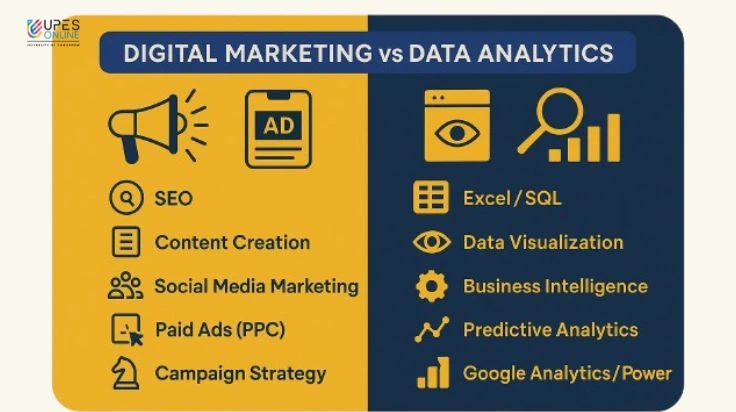Aviation 4.0: More Safety through Automation and Digitization

The manufacturing industry is undergoing significant transformations. The Internet of Things (IoT) has ushered in the fourth revolution. It connects machines, work, and systems to create intelligent networks that can independently exchange data and commands, initiate operations, and control each other. In five years, experts predict that 85% of businesses will use Industry 4.0 solutions throughout all major business divisions as well as the Aviation industry. Pursue a PGP in Air Business Management, the next big thing in the future, ready to employ Industry 4.0 and revolutionize the aviation industry completely.
What is the Industry 4.0 ?
The business world is debating this question, after steam-driven mechanical machinery, electrically powered mass production, and electronically/IT-powered automated manufacturing, Industry 4.0 is frequently referred to as the fourth industrial revolution. It emphases the creation of intelligent goods and smart manufacturing processes, as well as vertically and horizontally connected manufacturing systems. Smart items are easily identifiable, can be located at any time, and record historical and present information or status, as well as alternative routes to their goal.
Smart production processes are intelligent manufacturing processes in which the various stages of the lifespan, beginning with design and ending with retirement, are interconnected with one another. The four stages of the industrial revolution are illustrated in Figure 1.

The concept is renamed locally according to the different initiatives going on in various geographical areas and industry branches. A few of them are:
- Internet of Things (IoT) refers to the world in which all everyday objects and devices are completely interconnected for seamless interoperability.
- Industrial Internet of Things (IIoT) is what you get when applying the concepts of IoT to an industrial setting, for example, in production.
- Smart Manufacturing is a term mainly used in the USA, and China2020 is a term mainly used in China.
- Factory of the Future is a large research initiative supported by the EU, in which new technologies (such as IoT) should be applied to factories.
- Industrial Internet (General Electric), Connected Enterprise (Cisco), and so on.
- Industrial Digitalization is a term used in Sweden, which stresses the impact and potentials of digitalization in both manufacturing and process industries.
The difference between these initiatives does not lie in the goals, but rather in the selection of enabling technical solutions (e.g., wireless, or not, use of Internet or proprietary networks, point-to-point communication or not, cloud-based, or not, etc.).
Industry 4.0 in aviation
The principal uses of the Industry 4.0 concept in aviation so far have been connected to aerospace manufacturing processes. Barbosa gave an overview of how robotics, additive manufacturing, augmented reality, IoT, and simulation are being used in the aeronautics manufacturing industry today. He showed some new developments in the aircraft industry related to Industry 4.0 and its practical applications.
Even though the first completely automated aeroplane is still a long way off, with a Post Graduate Diploma in Aviation, and be a part of the revolution in aviation industry, where the use of robots at Airbus and Boeing is expected to allow for monthly production rates of more than 30 units for several aircraft types. In-Factory Solutions, a new Airbus spin-off, is working on the company’s vision of the “Factory of the Future,” with products and services for linked manufacturing in a fully connected and digital environment.

Simultaneously, some have highlighted the impact of Industry 4.0 key enabler technologies on how safety is maintained at manufacturing facilities. Big data analytics can give precise data for operational control, and the Internet of Things (IoT) could increase equipment safety by allowing for improved maintenance.
However, the potential of Industry 4.0 key enabler technologies to improve the exceptionally high standards of safety in aviation operations has yet to be explored.
So, in the future blogs, we’ll talk about how the forthcoming Aviation 4.0 age (Industry 4.0 for aviation) could signal a paradigm change in safety improvement. It examines the stages of aviation development from fundamental VFR flight rules at Aviation 1.0 through Aviation 4.0, when cyber-physical systems will be developed to aid humans in physically demanding, unpleasant, or dangerous labour, to make autonomous judgments, and to perform tasks.
UPES Online Admission Enquiry
Recommended Courses





Latest Blogs

Digital Marketing vs Data Analytics: Which Career Should You Choose?
Battle of skills: Digital Marketing vs Data Analytics—compare 2025 salaries, skills & job roles. Expert tips to choose your future career path!
Read MoreJun 15, 2025 I 12 mins
Why Should I Choose UPES Online? 10 Reasons Why
Explore why UPES Online stands out in online education. Learn about flexible learning, UGC-approved degrees, expert faculty & credible online programs. Enroll now!
Read MoreAug 21, 2025 I 5 min
Can Distance Learning Fully Replace Traditional MBA Education? Challenges & Limitations
Find out if distance learning can truly replace a traditional MBA. Learn key challenges, limitations, expert opinion & insights.
Read MoreSep 2, 2025 I 4 mins
Online MBA Capstone Projects and the Importance They Hold
Know the importance of online MBA capstone projects. Learn how they build real-world skills, boost career opportunities, & add industry value.
Read MoreSep 7, 2025 I 5 mins
UPES Online MBA vs Other Top Universities: Why Students Prefer UPES
Compare UPES Online MBA with other top universities. Know why students prefer UPES online over others. Check fee, flexibility, faculty, ROI, & career scope.
Read MoreOct 1, 2025 I 7 mins








